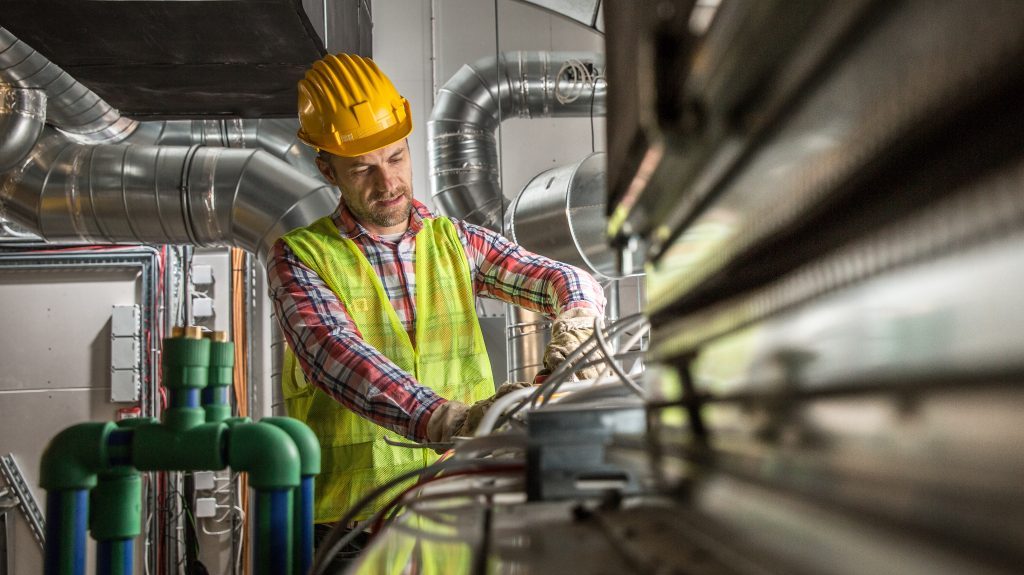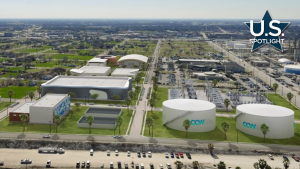Waterloo-based HVAC technology startup is garnering attention and, more importantly, attracting significant investment dollars as it continues to develop its refrigerant-free dehumidification systems.
The key is Evercloak’s proprietary graphene-oxide membrane technology, which can improve building cooling efficiency by up to 50 per cent. Traditional cooling systems chill air until the water vapour is condensed, whereas Evercloak’s system with its unique membranes are designed to let water molecules pass through while keeping out the air.
Removing humidity from the air and keeping it in a vapour phase greatly reduces the energy required to dehumidify and cool air.
On July 10 Evercloak announced it has received $1.1 million in funding from Natural Resources Canada’s Energy Innovation Program to support the development and commercialization of the membrane-based system. Five days later the firm announced more funding, from the New York State Energy Research and Development Authority (), to support a pilot project valued at up to US$3 million.
“We have proven technology, and we’re working on accelerating the commercialization of our market-first, building dehumidification technology,” said Evercloak COO Helen Papachronis. “Buildings account for 40 per cent of global GHG emissions, and over 50 per cent of building cooling energy is used to reduce humidity, not temperature.”
The six-year-old firm has identified a number of different potential applications for the membrane including humidification, dehumidification, pervaporation and gas dehydration among others. Vapor-vapor phase separations could be used with air dehumidifiers, energy recovery ventilators, fuel cell humidifiers, gas dehydration and tritiated water recovery. But Papachronis said for now Evercloak is focusing on its building dehumidification technology.
Startup to scale-up
“We are at an interesting point of transitioning from startup to scale-up, collaborating with partners who are greatly interested in our solution,” she remarked.
Evercloak is able to manufacture large area, low-cost, high-performance nanocoatings, ranging from single atomic layers to hundreds of nanometers in thickness. According to its website, its roll-to-roll coating process requires minimal energy and produces minimal waste, keeping costs low.
Evercloak can produce films using a variety of materials and inks, including graphene oxide, graphene, carbon nanotubes, hexagonal boron nitride and other 2D nanomaterials.
Graphene has capabilities both from a tensile strength perspective and a thermal perspective, and the firm is actively partnering with HVAC manufacturers to commercialize its systems globally.
“Our technology is a module that can easily be retrofitted into existing HVAC systems. Doing so reduces the amount of energy and refrigerant required to then cool it,” said Papachronis. “As a result, this provides a cost-effective solution that can be installed in both new and existing buildings, creating immediate energy savings.”
In February, after field trials of two demonstration units in summer 2023 proved how well the system performs, Evercloak announced it had raised $2 million in a seed round of investment. The round was led by Bioindustrial Innovation Canada’s Sustainable Chemistry Alliance fund. The investment also included Greensoil Ventures and Groundbreak Ventures, Ontario Centres of Innovation, and angel investors.
As part of the NYSERDA deal, Evercloak will initially receive US$350,000 to build an advanced dehumidification system prototype. NYSERDA has the option to extend the award, providing an additional US$1.15 million to fund the development of a full-scale HVAC system and commercial demonstration of the system in a New York City building.
NYSERDA CEO DoreenHarris said in a statement, “Innovative solutions like Evercloak’s dehumidification technology are helping to advance scalable systems that can be implemented in existing buildings across the state while helping to provide a safe and comfortable living environment for residents.”
“The momentum you’re seeing is a testament to the work done by the talented Evercloak team, and the demand for energy-efficient buildings,” said Papachronis.
Follow the author on X/Twitter @DonWall_DCN.











Recent Comments
comments for this post are closed